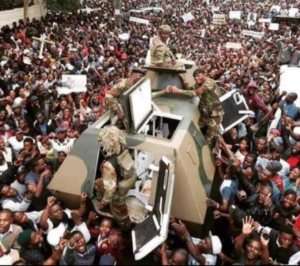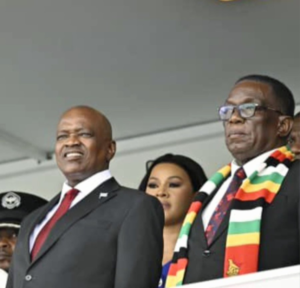THE BALLOT BATTLE: ZIMBABWE’S 2023 ELECTION CONTROVERSY UNFOLDS

The turbulent political landscape of Zimbabwe has witnessed yet another chapter of contention in the 2023 general elections. As Zimbabweans rallied for change, allegations emerged of an intentional delay in the distribution of ballot papers. The primary target? Urban voters, who are perceived to be less favourable to the ruling Zimbabwe African National Union-Patriotic Front (ZANU PF).
Zimbabwe’s elections have often been under the spotlight for various reasons – from alleged irregularities to tensions between parties. This year was no exception, as news broke of delays in delivering crucial voting materials to densely populated urban centres. This delay, many argue, was a calculated move by entities within or sympathetic to the ruling party, with the aim of reducing the turnout of a demographic that was showing significant promise for the opposition.
Why the Urban Voter Matters
Historically, Zimbabwe’s urban population has leaned towards opposition movements, voicing their concerns about ZANU PF’s policies and governance. Urban areas, being the hub of media, education, and commerce, tend to house a more informed and vocal demographic. This year was of particular interest as the voter turnout from these regions was predicted to reach record highs, much to the alarm of the ruling party.
The urban voter is not just a number; it represents a significant portion of the nation’s thought leaders, influencers, and professionals. To allegedly undermine their right to vote is to sideline a substantial voice in the national dialogue.
Reports from the Ground
Across major cities like Harare and Bulawayo, reports emerged of voters queuing for hours, only to be told that ballot papers had not arrived. Desperate citizens took to social media to share their frustrations, creating a ripple effect that soon gained international attention.
Mai Tendai, a 54-year-old resident of Harare, stated, “I waited for five hours. They kept telling us the papers would come. But as the sun set, hope faded. It felt like a déjà vu from past elections.”
Local NGOs monitoring the elections have expressed grave concerns. The Zimbabwe Election Support Network (ZESN) released a preliminary report highlighting discrepancies in the timely distribution of voting materials in urban centres compared to the swift dispatch in rural areas. Their findings pointed towards a disturbing pattern that seemed to disadvantage urban voters.
ZANU PF’s Response
ZANU PF officials were quick to distance themselves from the controversy. The party’s spokesperson stated, “The distribution of ballot papers is the mandate of the Zimbabwe Electoral Commission (ZEC). ZANU PF has no hand in it. Our focus is on winning the hearts and minds of the Zimbabwean people, both in rural and urban areas.”
However, this statement did little to douse the flames of doubt, especially given ZANU PF’s historical distrust with many urban constituents.
International Repercussions
With Zimbabwe’s history of contested elections, international observers were on high alert. The alleged delays have drawn criticism from global leaders, urging for a transparent review.
The European Union’s monitoring team commented, “For a nation that strives to rebuild its image and forge stronger global ties, such discrepancies raise red flags. The voice of every Zimbabwean, be it from urban or rural regions, must be heard.”
While the final tally and its consequences are yet to be ascertained, the 2023 elections have added another layer to Zimbabwe’s intricate political tapestry. As the nation grapples with these allegations, it serves as a poignant reminder of the importance of transparent and fair elections, not just in Zimbabwe but across the globe.
Whatever the outcome, it’s clear that the spirit of the Zimbabwean voter – resilient, hopeful, and demanding change – remains undeterred.



